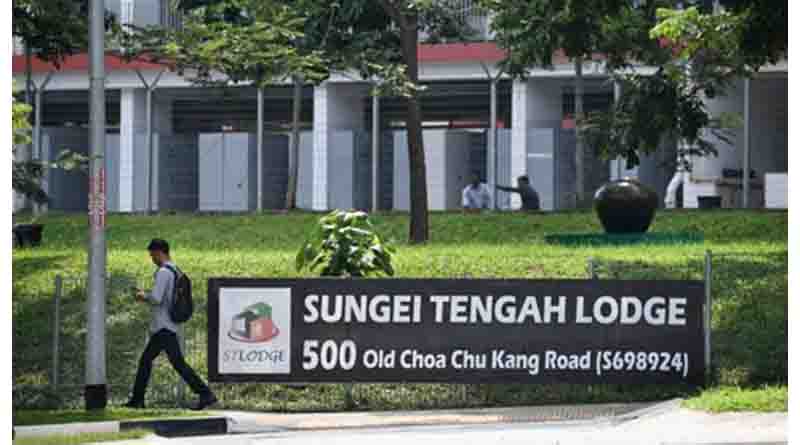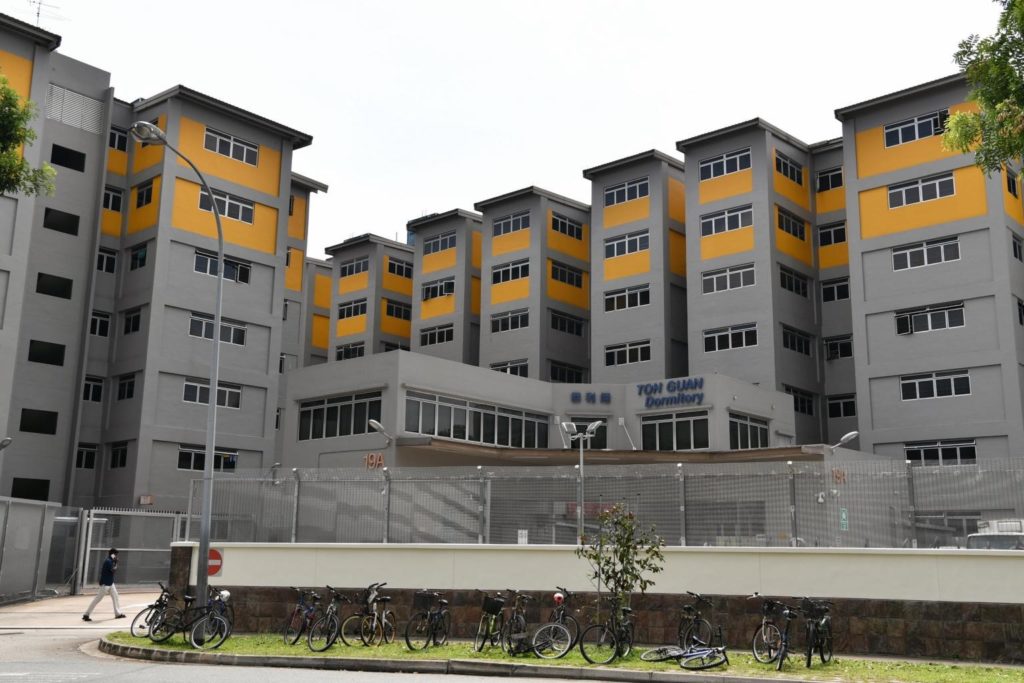Five Measles Cases Reported at Foreign Worker Dormitories, But No Evidence of Outbreak: MOH

SINGAPORE – Five Bangladeshi workers staying at two different dormitories tested positive for measles this month, The Straits Times has learnt.
Two of the workers were staying at Toh Guan Dormitory in Toh Guan Road and the three others were at Sungei Tengah Lodge in Old Choa Chu Kang Road, the Ministry of Health (MOH) confirmed on Thursday (June 27).
Measles is a highly contagious disease caused by the Rubeola virus. It can cause symptoms such as fever, a runny nose, coughing, red and watery eyes, and rashes.
A spokesman for MOH said the ministry is continuing to monitor the situation and that there is currently no evidence of community spread from the cases.
The incidents are not linked and MOH said the workers are also no longer infectious.
The spokesman added: “MOH has engaged the dormitories, employers and foreign workers to undertake precautionary measures.
“These include enhanced monitoring, vaccination of close contacts who do not have proof of vaccination or immunity, closely monitoring the health of the identified close contacts and seeking medical treatment promptly if they are unwell.
“All suspected measles cases will be isolated.”
The first case involved a worker at Toh Guan Dormitory who developed symptoms on May 31.

He was later admitted to hospital on June 3 and tested positive for measles on June 6. He has since been discharged.
On June 16, the worker’s roommate also developed symptoms and sought outpatient treatment. He was isolated at the dormitory’s sick bay and tested positive for measles on June 20.
“As measles is contagious, such spread in close quarters is not unexpected,” said the ministry spokesman.
Close contacts of the two workers, including roommates and co-workers, were later vaccinated against measles, MOH said.
Separately, three workers at Sungei Tengah Lodge were hospitalised and tested positive for measles between June 20 and 21.
MOH said investigations showed that the three workers stayed in different blocks at the dormitory and had no known contact with each other. They are also from different companies and had worked in different locations.
Two of the workers have since been discharged while the other is in stable condition.
These cases do not have any link to the others at Toh Guan Dormitory, MOH said, adding that contact tracing and investigations into the cases at Sungei Tengah Lodge are ongoing.
As of Wednesday, 92 close contacts of the men have been identified and 91 have been vaccinated, MOH said. The remaining person will be vaccinated on Thursday, it added.
“As an added precaution, MOH is extending vaccination to all residents who stayed on the same floor as each of the three cases, given that residents living on the same floor at Sungei Tengah Lodge share toilet and bathroom facilities,” the MOH spokesman said.
The Rubeola virus is contagious and can be passed by direct contact or through the air. It can spread very quickly in populations with low or no immunity, such as unvaccinated individuals. Symptoms of measles usually appear 10 to 12 days after coming into contact with the virus.
Though it is more common among children, measles can be contracted at any age. There is no specific cure but doctors can prescribe treatments to relieve symptoms.
While most people with measles recover fully, it can sometimes lead to blindness, ear infection, severe diarrhoea and even death in serious cases.
A spike in measles cases has been reported in Singapore this year. Last month, Health Minister Gan Kim Yong told Parliament that there were 43 measles cases here in the first four months of this year, nearly three times the number seen during the same period last year.
He said 33 of the 43 cases involved individuals who had not been vaccinated, ranging from infants to adults.
The measles, mumps and rubella (MMR) vaccine is generally given in two doses: first, when a baby turns one year old, and then when the child is between 15 and 18 months old.
It is mandatory for local parents to vaccinate their children against measles and diphtheria. Those who fail to do so will receive reminders and those who refuse can be fined.
Since February this year, foreign-born children applying for long-term immigration passes must also submit proof that they have received vaccination for measles and diphtheria.
ST understands that vaccination against measles is not a requirement for foreign adults entering Singapore, including foreign workers.
The Health Ministry’s National Adult Immunisation Schedule, established in 2017, recommends measles vaccination to adults who have not been vaccinated or infected.
A ministry spokesman said: “In line with international practices, adult foreign nationals are recommended to be vaccinated against measles when entering Singapore. Individuals should seek advice from their doctor and discuss their vaccination needs.”
“The vaccine is available at polyclinics and private general practitioner clinics.”
Source: www.straitstimes.com



